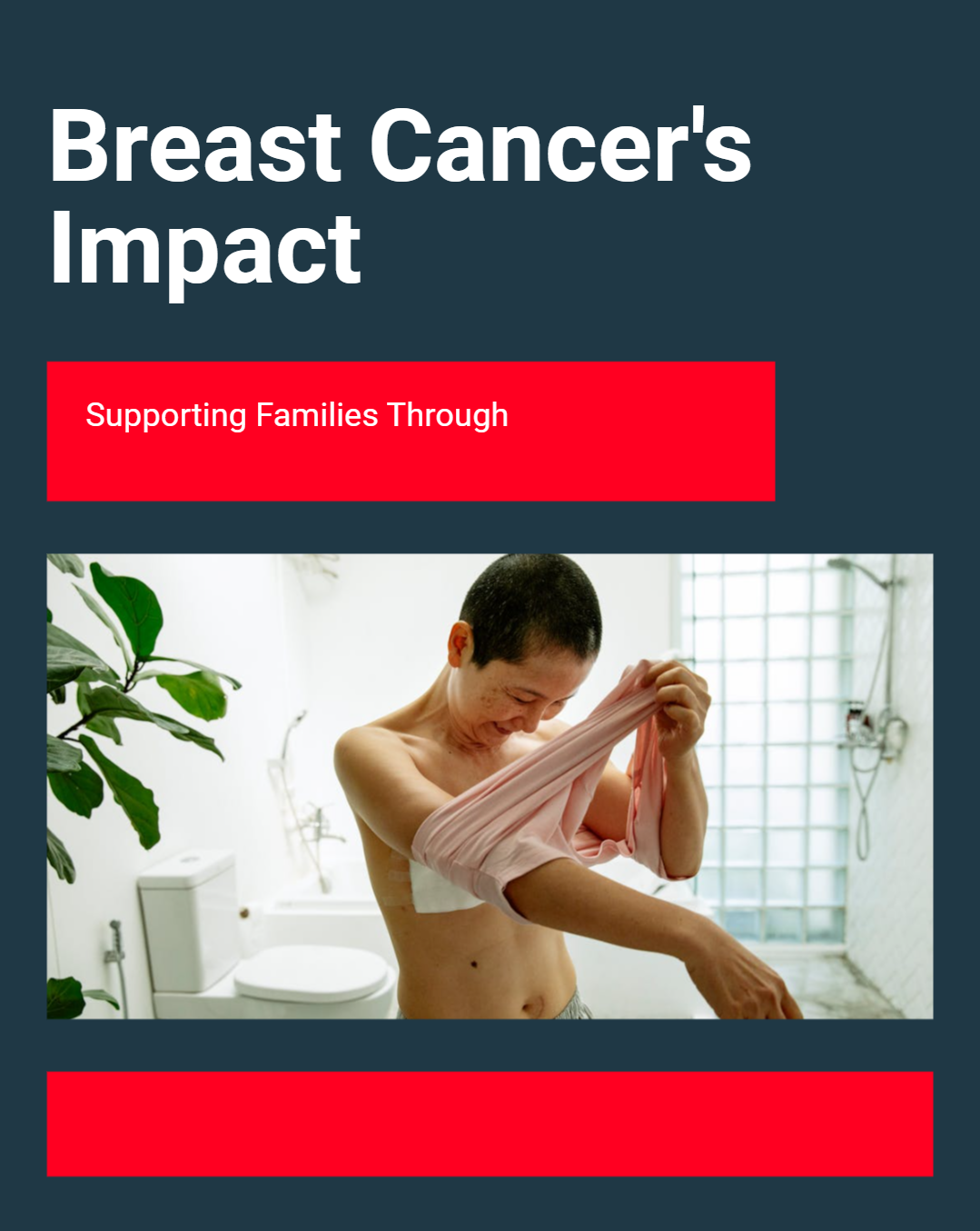
Breast cancer is a journey that doesn't just affect the individual diagnosed; it ripples across the entire family. Understanding the emotional, financial, and social challenges families face can foster empathy and provide a roadmap for offering meaningful support. In this article, we explore how breast cancer impacts families and share actionable ways to support loved ones through this difficult time.
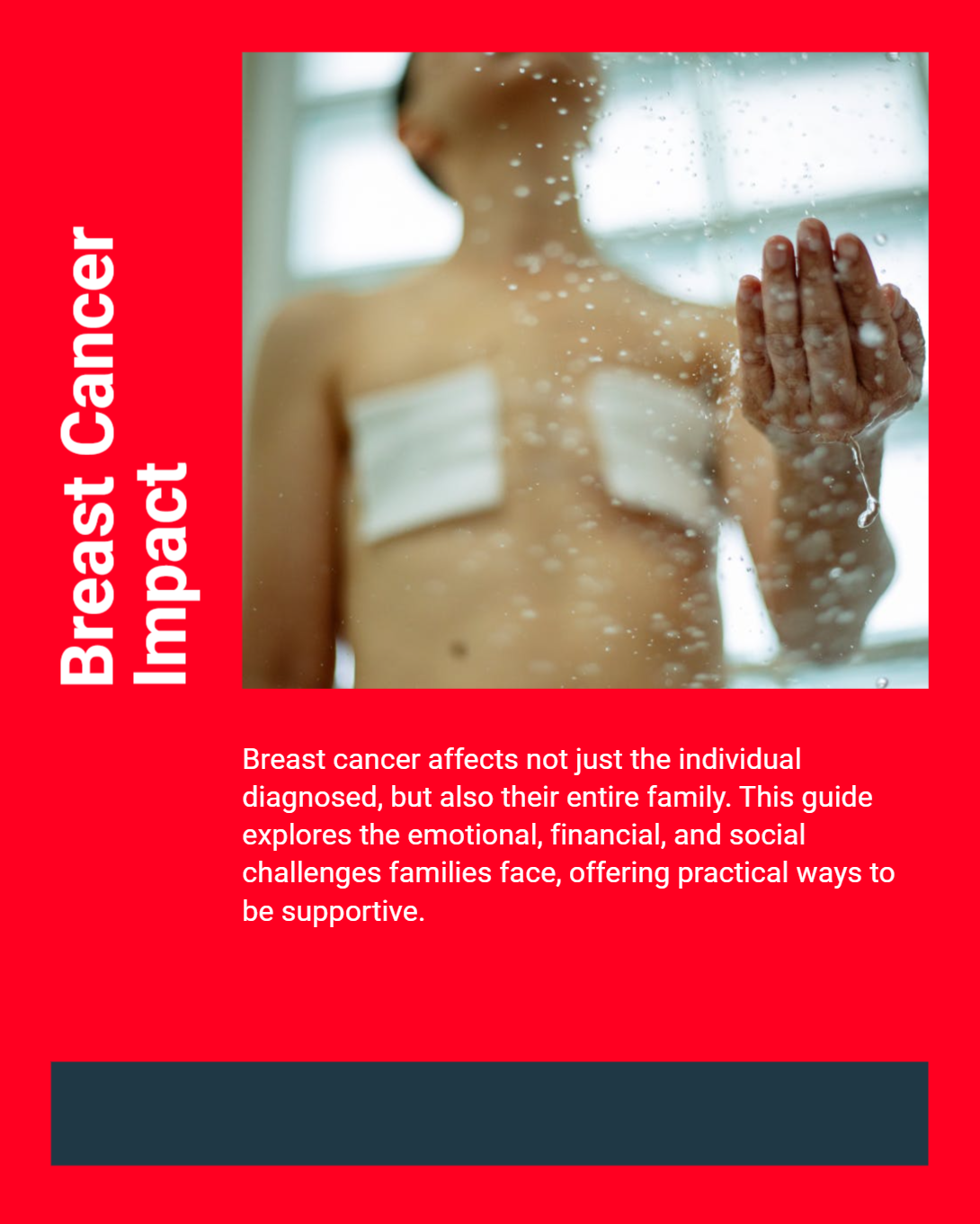
When a loved one is diagnosed with breast cancer, families often experience intense fear and anxiety. Questions about survival, treatment success, and potential lifestyle changes can feel overwhelming.
Family dynamics frequently shift during this time. Partners may take on caregiving roles, children may feel the need to grow up faster, and extended family members often step in to fill gaps. This change can be emotionally draining but also create opportunities for growth.
Loved ones may grapple with feelings of guilt or helplessness, questioning whether they’re doing enough or if there was anything they could have done differently.
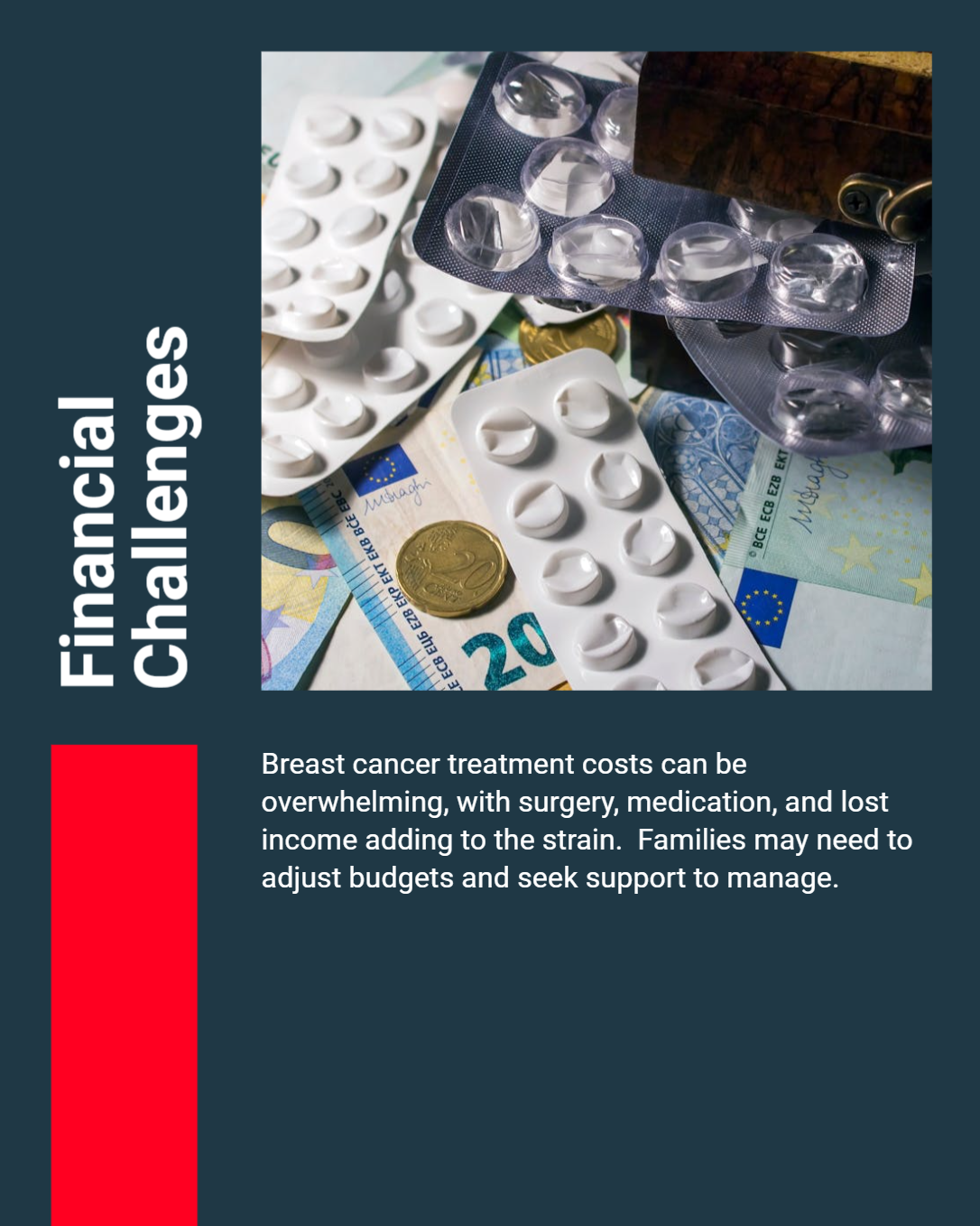
Breast cancer treatment, including surgery, chemotherapy, radiation, and medications, can create financial strain. Families may need to adjust budgets, cut back on expenses, or seek external assistance.
If the diagnosed individual or their primary caregiver is unable to work, the loss of income can add another layer of stress. Families often find themselves juggling medical bills and daily expenses.
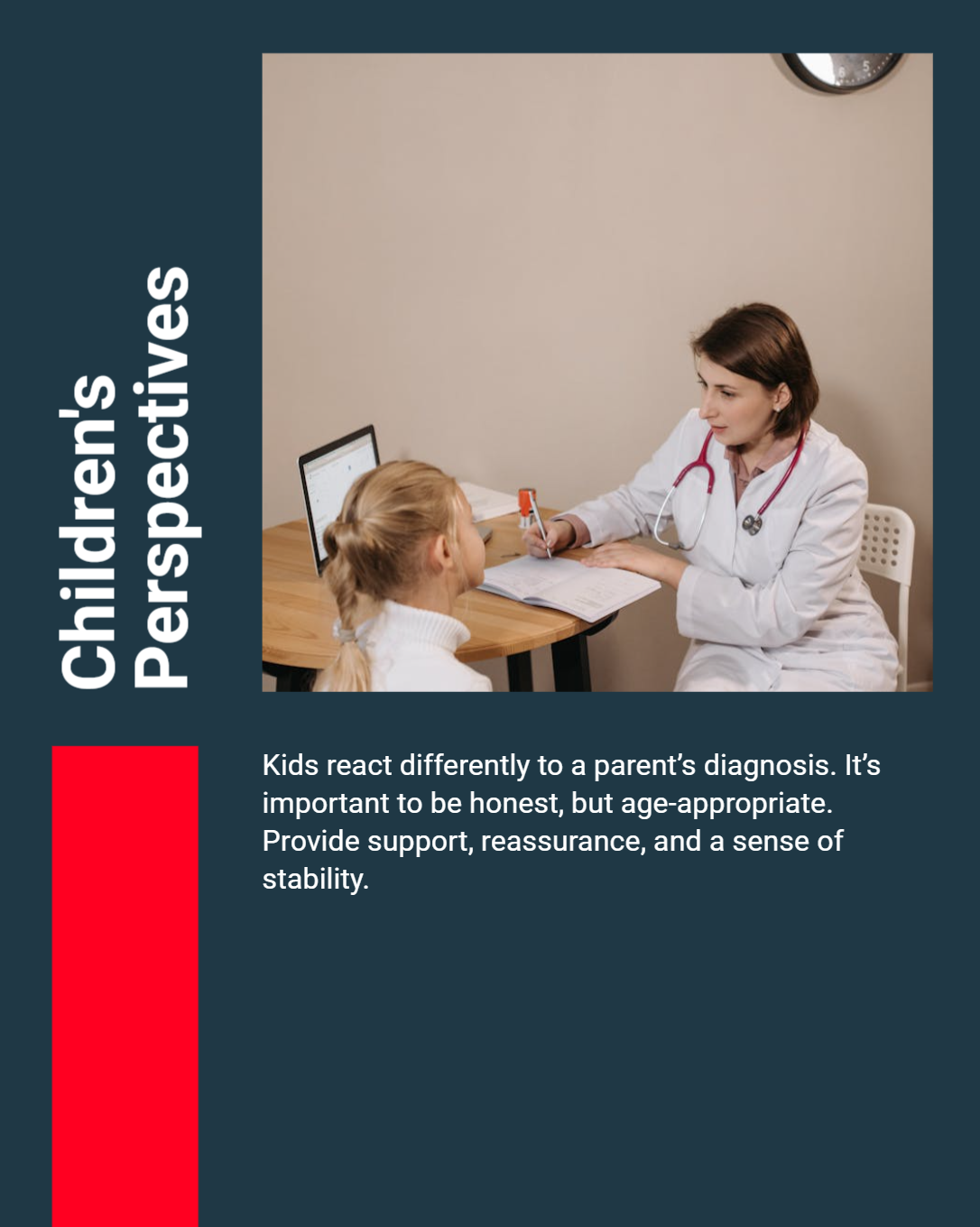
Children often struggle to comprehend the gravity of breast cancer. Honest but age-appropriate communication is crucial in helping them process the situation.
Partners often feel the weight of balancing caregiving, emotional support, and maintaining household responsibilities. This stress can either strengthen the bond or create tension.
Families may find themselves withdrawing from social activities due to time constraints or emotional exhaustion. Friendships can falter without intentional effort to stay connected.
Seeking professional counseling can help families navigate the emotional challenges of breast cancer. Therapists can provide tools to manage stress, grief, and communication.
Financial planners experienced in medical expenses can provide strategies to mitigate the economic burden.
Both in-person and online groups can offer invaluable encouragement and advice from those who understand the journey firsthand.
After treatment ends, families often adjust to a "new normal." This may include ongoing medical appointments, lifestyle changes, or even a renewed appreciation for life.
Many families report greater resilience and stronger connections after navigating a breast cancer diagnosis together.
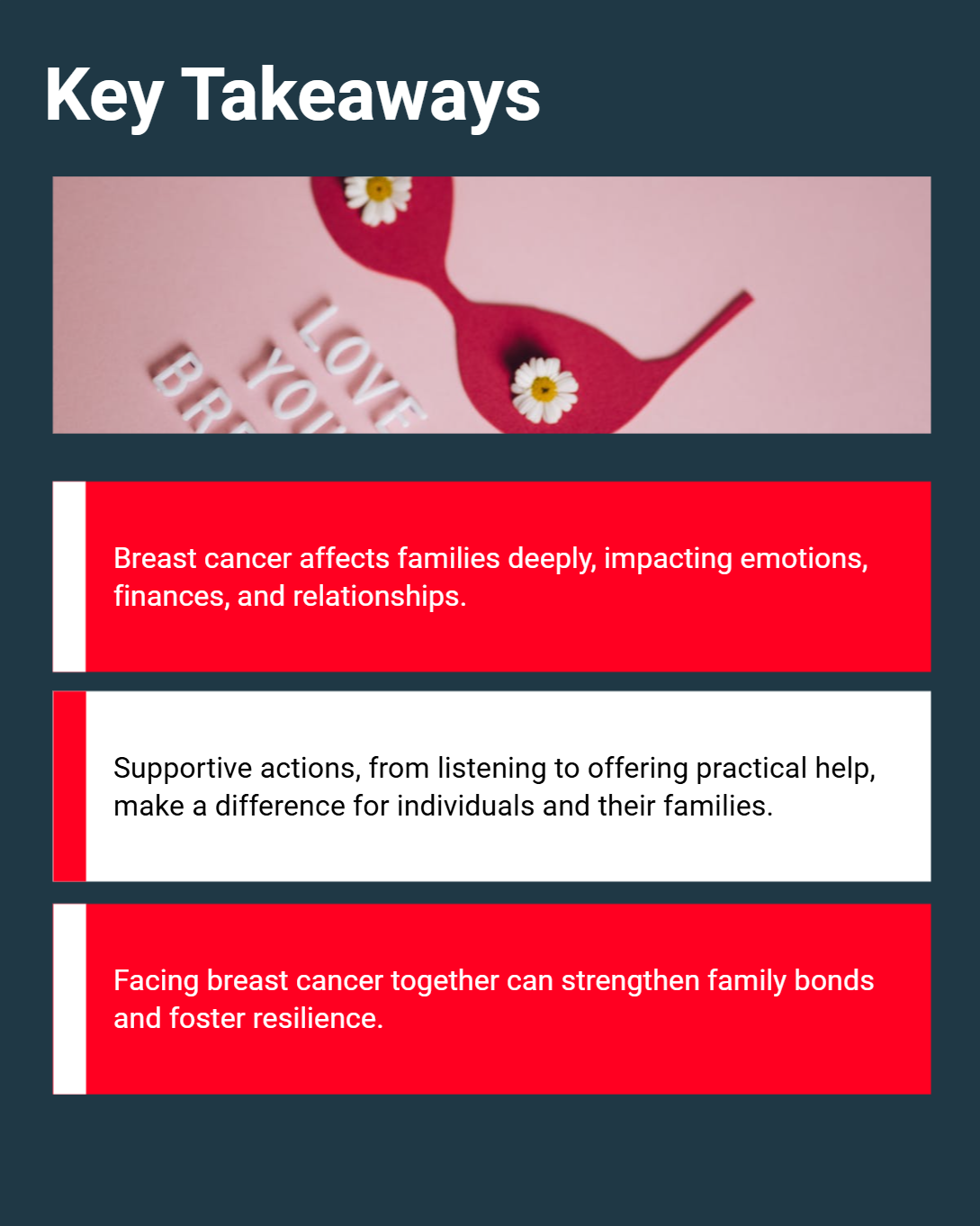
Breast cancer is a formidable challenge, but families who face it together often emerge stronger and more connected. By understanding the emotional, financial, and social impacts of the disease, we can provide the right kind of support to both the individual diagnosed and their loved ones. Whether through listening, lending a hand, or simply being there, our actions can make a significant difference in the lives of those affected by breast cancer.
Offer practical help, like cooking meals, or emotional support through active listening. Small acts of kindness go a long way.
Look into local cancer support groups, national organizations like the American Cancer Society, and financial aid programs specific to cancer patients.
Use simple, honest language appropriate to their age. Encourage them to share their feelings and ask questions.
Seek assistance from non-profits, explore crowdfunding options, and consult a financial advisor for tailored advice.
Take breaks, seek support, and engage in activities that help recharge, like exercising or spending time with friends.
 20.01.2025
20.01.2025